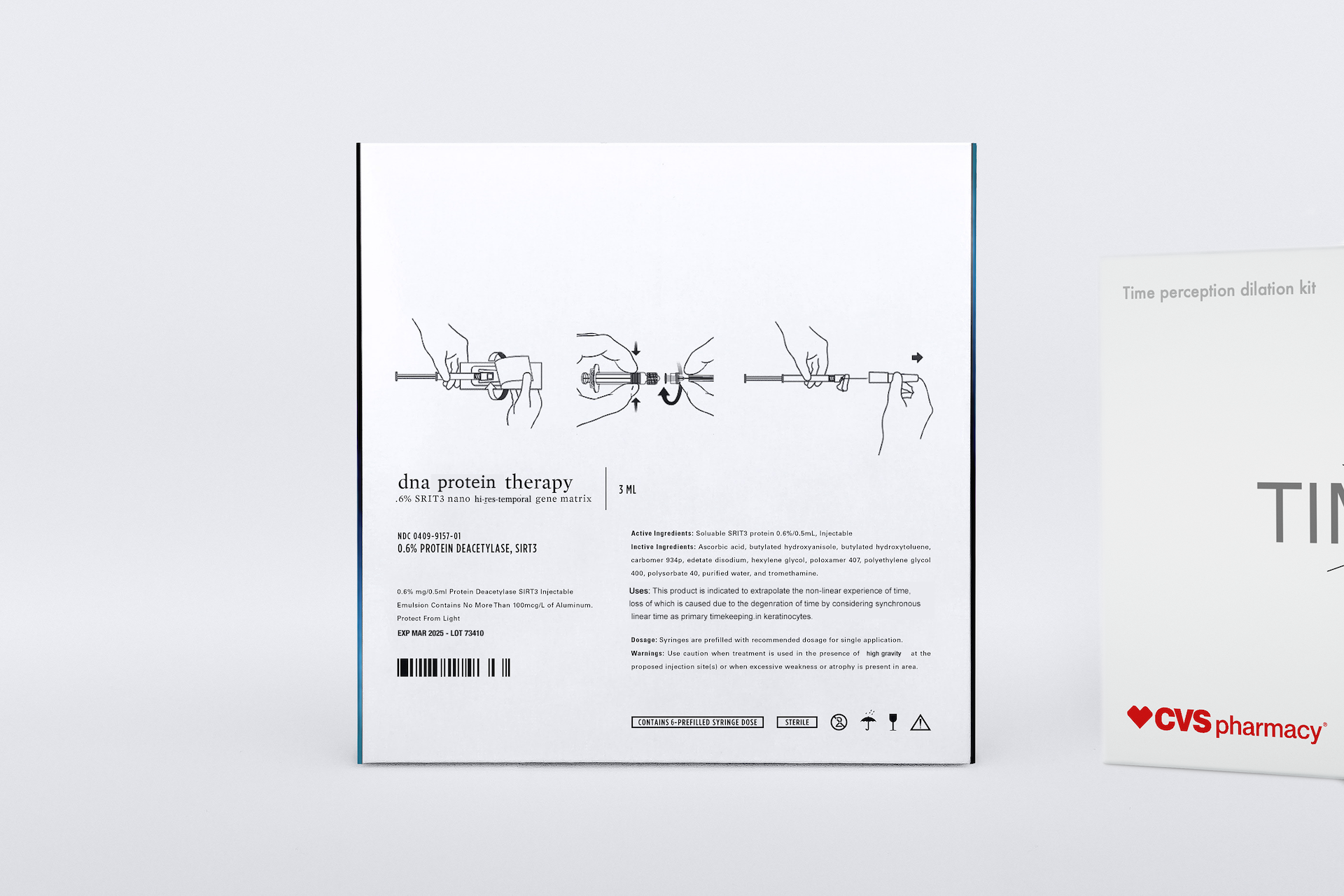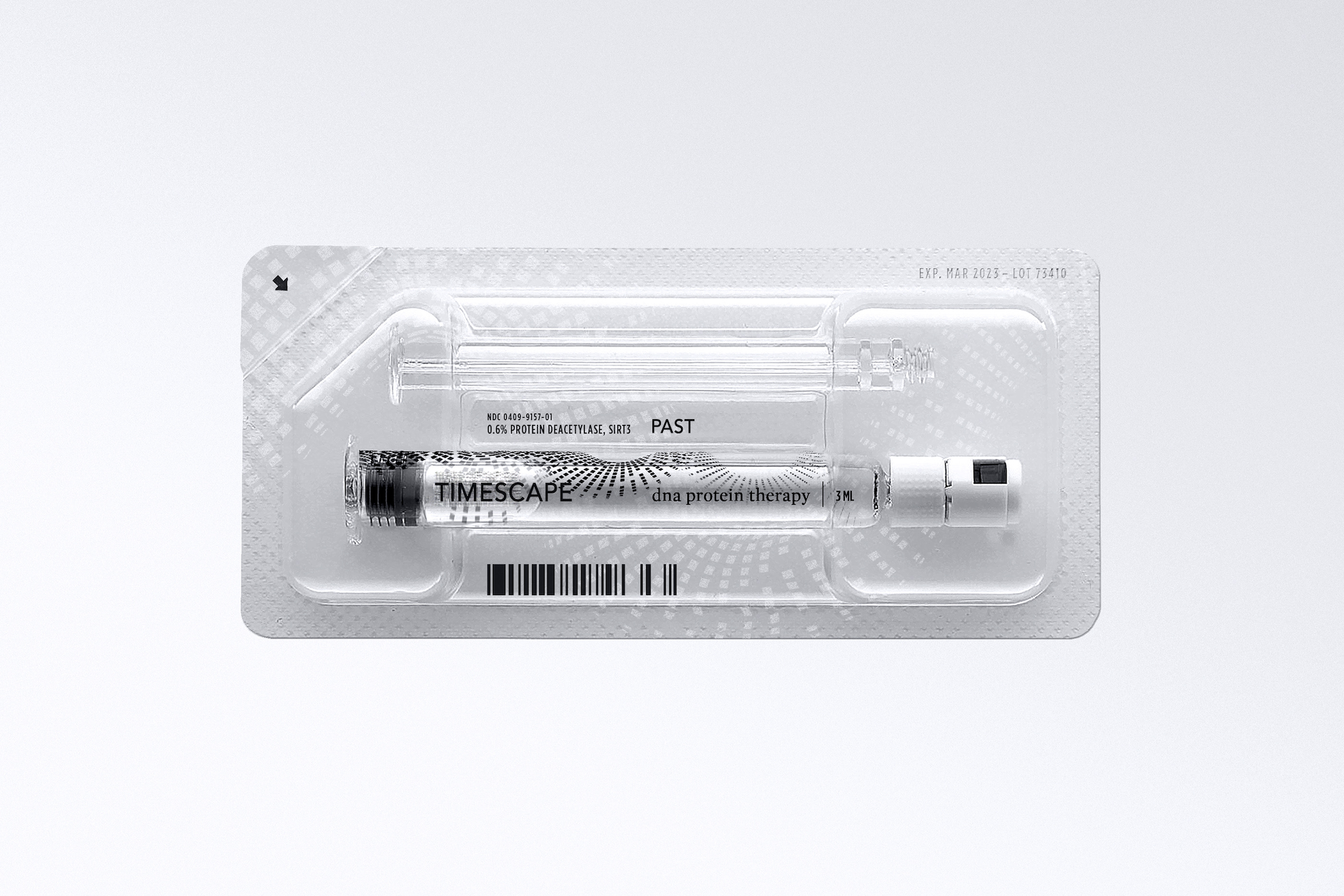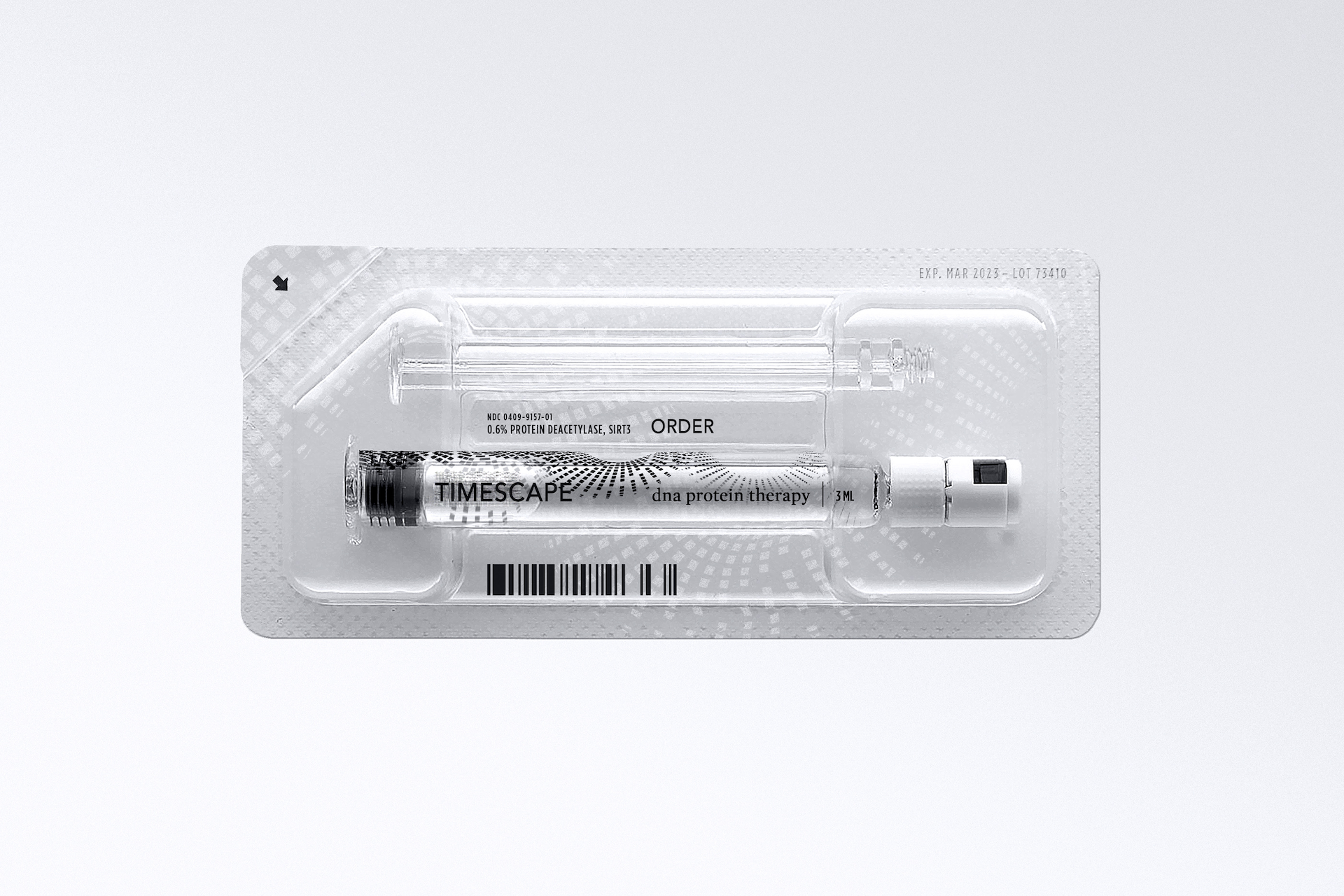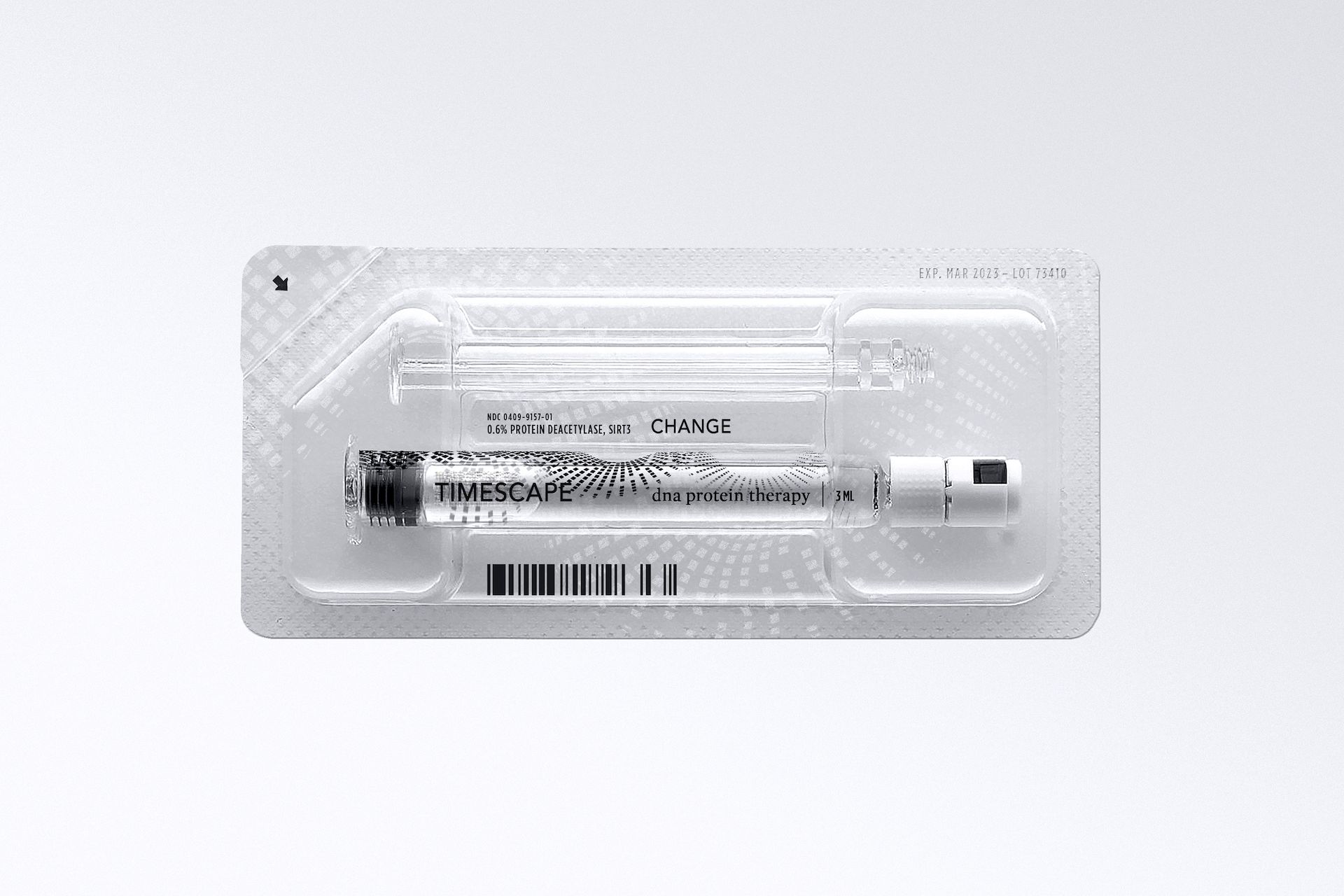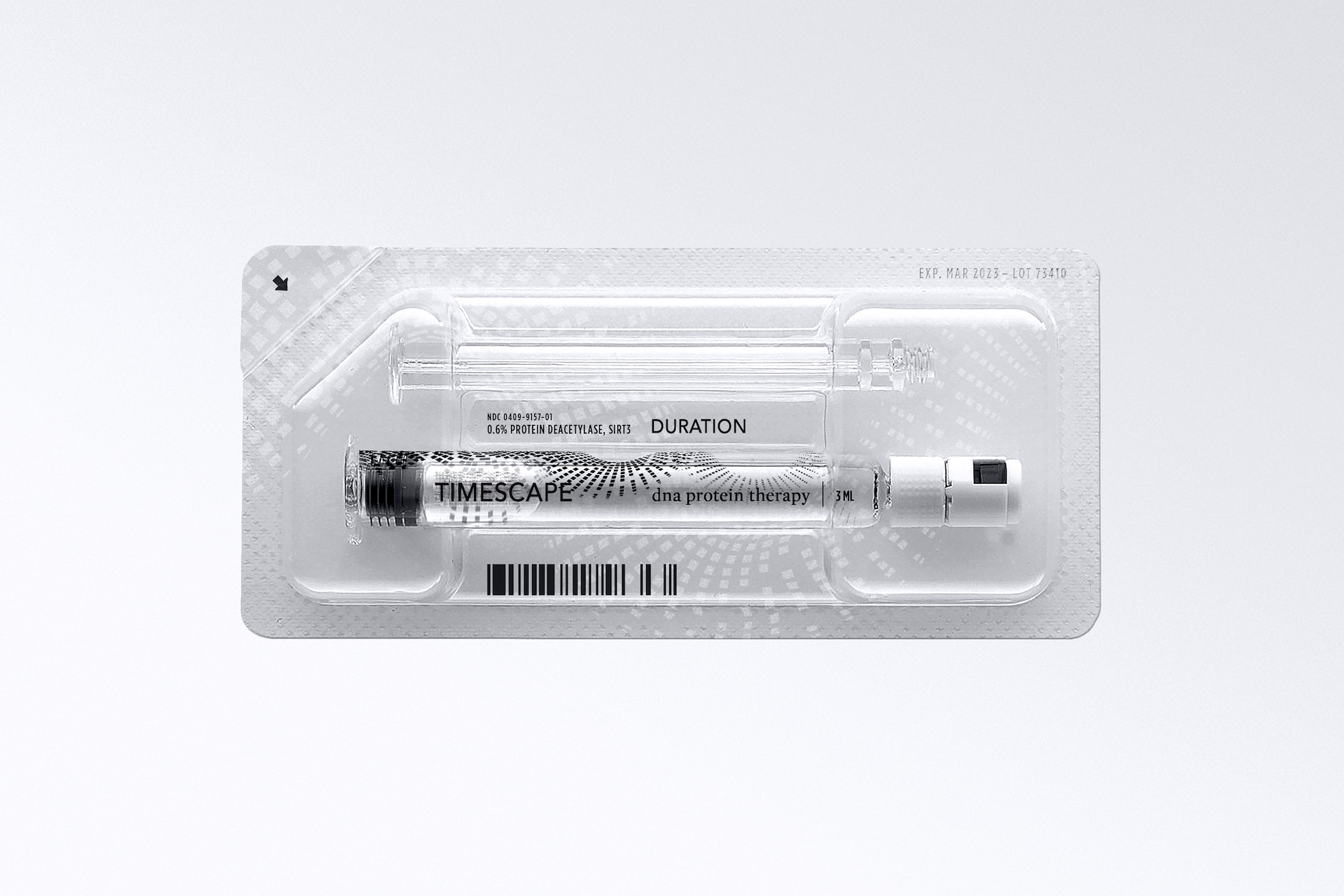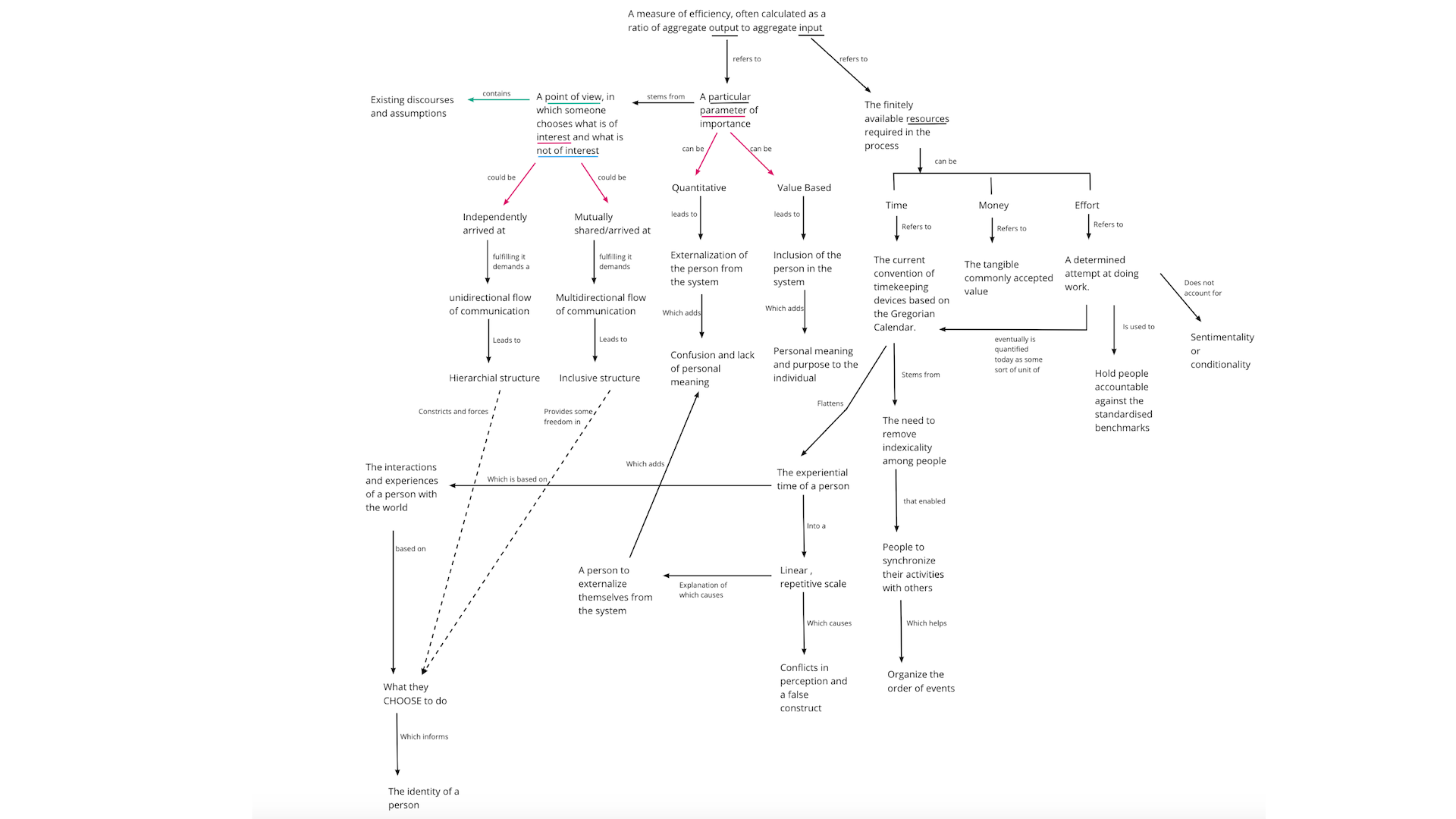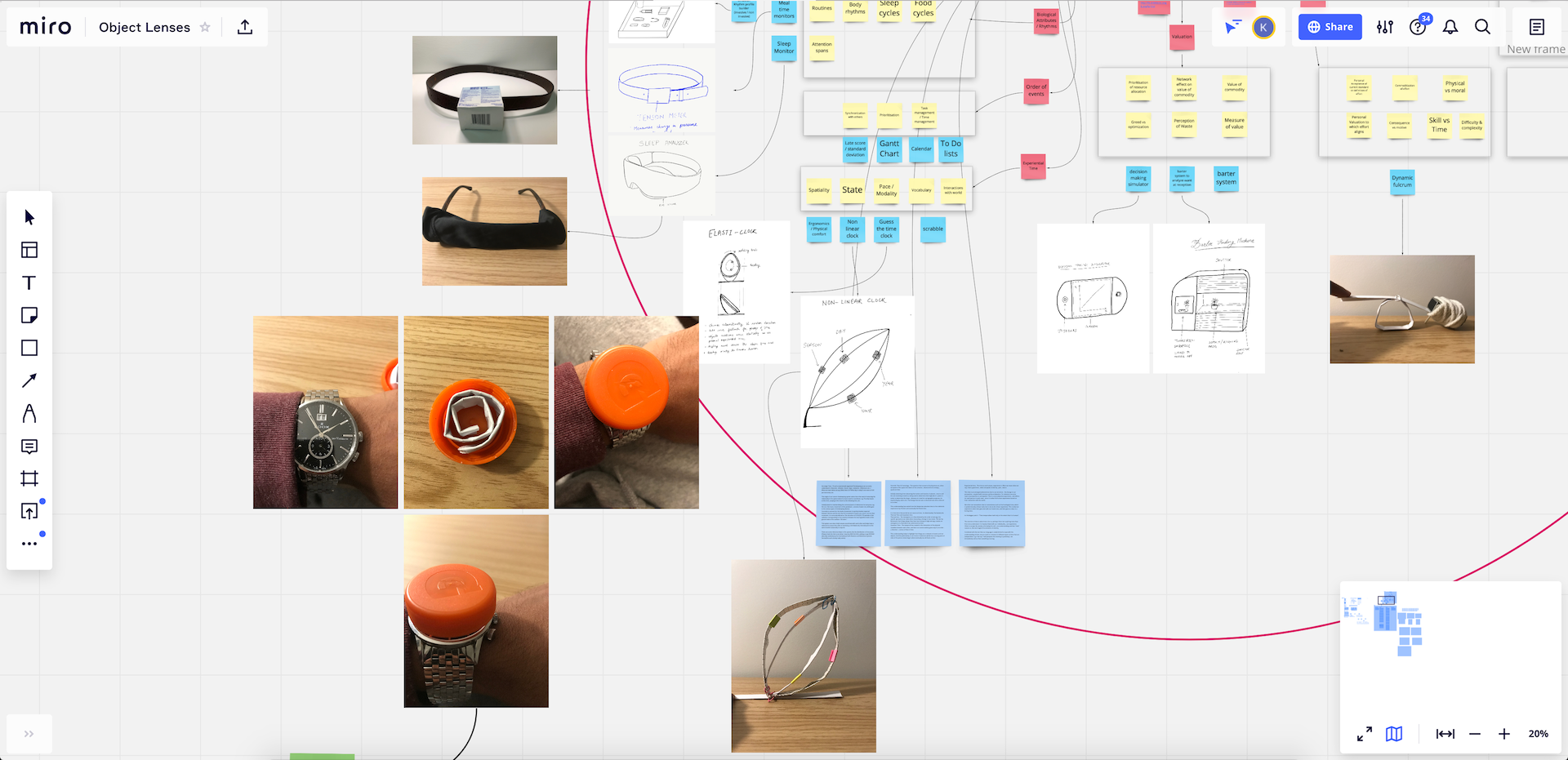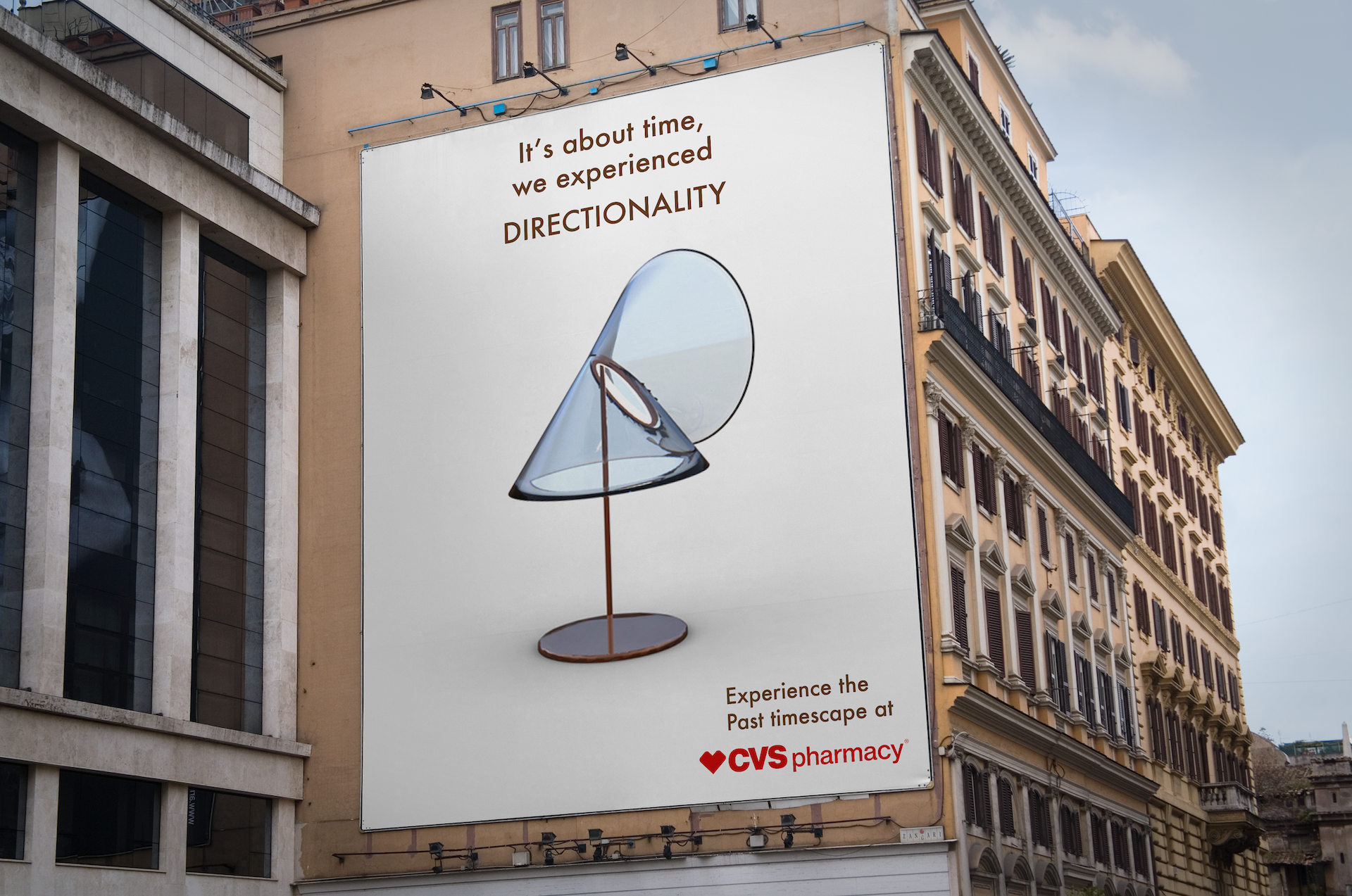Timescape: A Speculative Neural Hacking Kit
“The speculative product is intended to provoke a conversation around the conflict between time as we experience it, and the construct of linearity that ‘clock time’ imposes.”
Timescape is a speculative neural hacking kit that aims to deconstruct the notion of linearity in perceived time. It consists of injectable proteins that temporarily alter the brain's neural plasticity, which changes various perceptions of time—including sequence, direction, change, and duration. Second-year student Karan Bansal created Timescape as part of his MFA thesis—an exploration into time poverty, colonialist origins of timekeeping, and ways to augment time that restore choice.
Timescape is intended as a bio-hack that users can obtain at the nearest pharmacy. Karan says the speculative product is intended to "provoke a conversation around the conflict between time as we experience it and the construct of linearity that ‘clock time’ imposes. It challenges the status quo of time that is external and independent to time that is subjective and experiential."
The Timescape kit consists of four shots, each of which is responsible for changing a specific perception. Each syringe consists of a protein formulation that modulates the synaptic stimuli responsible for mechanisms responsible for creating the respective construct in the brain. Let’s take a look at the four different types here:
Karan interviewed various subject matter experts in the fields of Psychology, Cognitive Neurology, Chronobiology, and Medicine during his design research phase to gain insights into experiential time. During these interviews, he learned that neurologically, time is only a reflection of change, and it is perceived as flowing due to the way the brain is hardwired. It was during one of his interviews, when the interviewee referenced examples of Alzheimer's patients for spatial-temporal distortion, that Karan saw the possibility of a neural-hacking kit.
During the digital ethnographic research phase for his thesis, Karan came across many participants who expressed a conflict in experiential time and clock time during the COVID-19 pandemic. Through his in-depth research, Karan learned that the brain constructs a sense of time-based on the subjective experiences a person undergoes. Karan started exploring various ways to highlight the non-linearity of time by sketching and making different low fidelity prototypes.
Karan also created an advertising campaign for Timescape. Check out some of the billboard designs here:
Karan says that Timescape explores ways of deconstructing our mental models of clock time that are linear, consistent, repetitive, and continuously flowing, instead of non-directional, elastic, non-repetitive, and discrete, which are driven by our experiences. The project’s next steps? “Since this is a speculative product, I would like to co-create with people, experiences, or interventions that will facilitate or emphasize qualitative experiential time instead of the static clock/time in our existing systems,” Karan shares. Stay tuned—the Class of 2021 Thesis Presentations will go live May 22!

